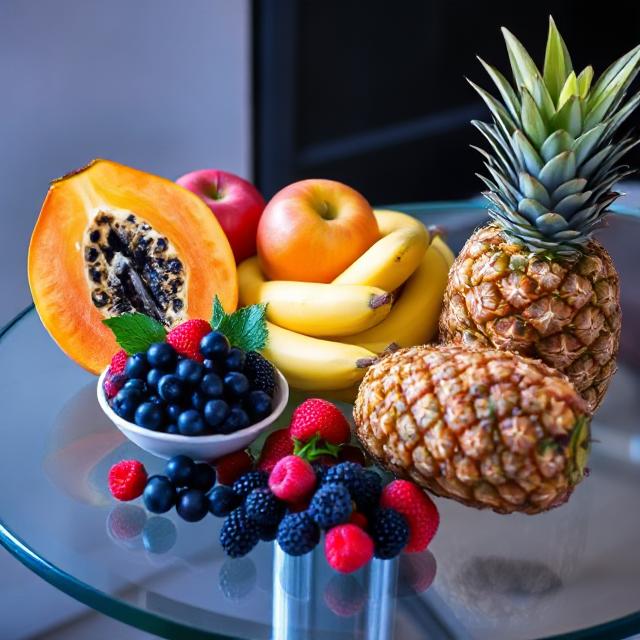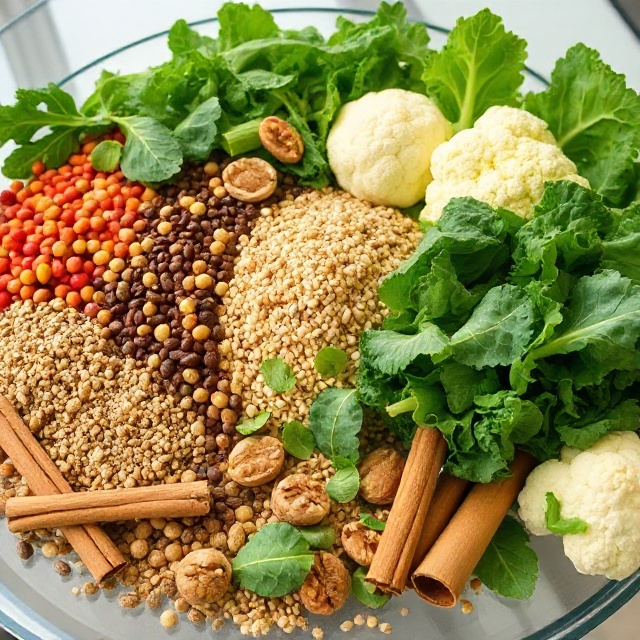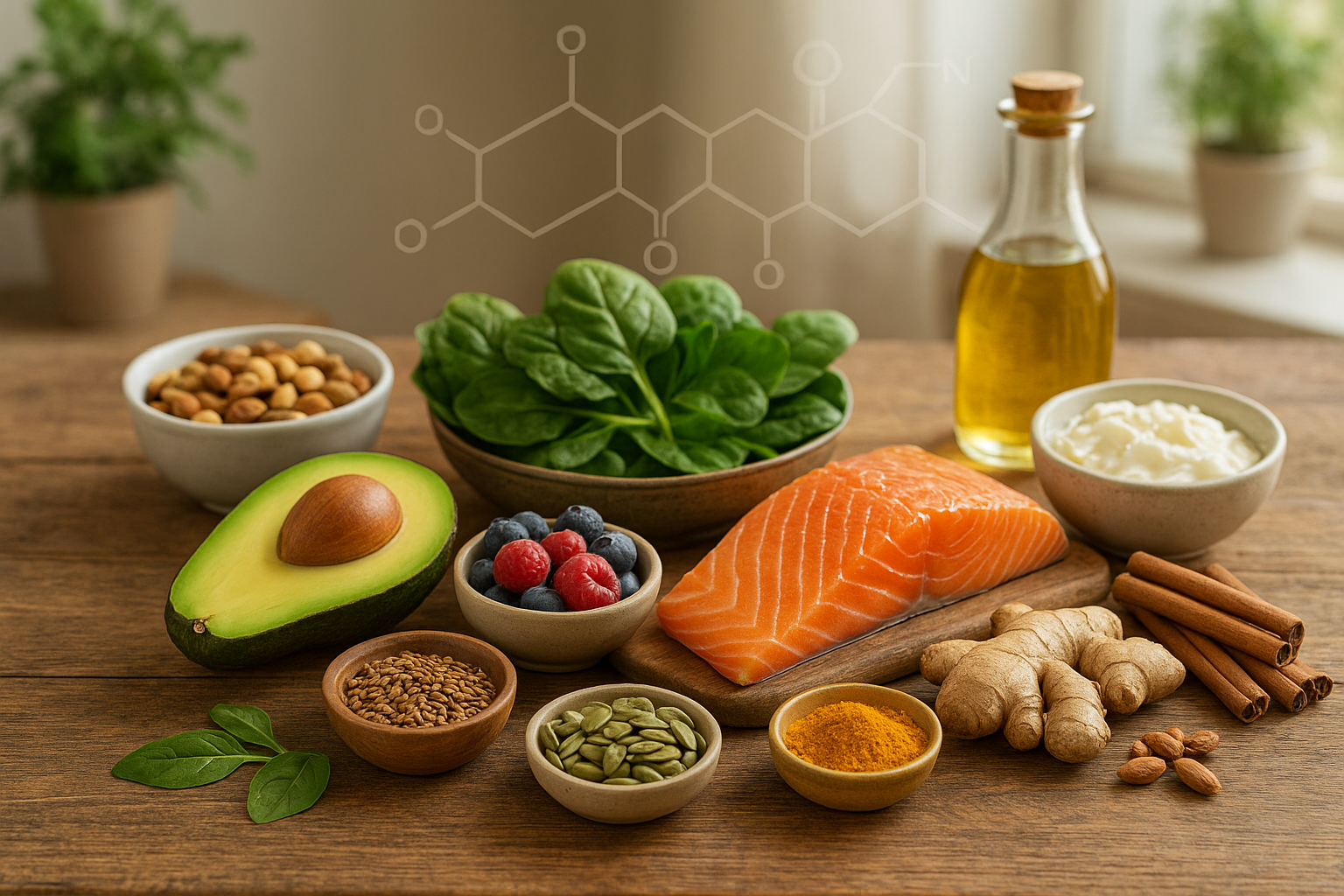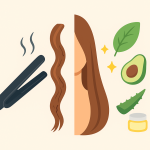Hormonal imbalance can disrupt everything from mood to metabolism, fertility, skin health, and sleep. Instead of turning first to synthetic medications, many are now asking, “Can you balance hormones with food?” The answer is yes—nature provides powerful solutions for hormonal health.
How Do You Balance Hormones with Food?
Balancing hormones starts with what’s on your plate. Dr. O’Neill emphasizes that a healthy, balanced diet rich in nutrients, fiber, and antioxidants helps the endocrine system regulate hormone production naturally.
Hormones Balance Tips
- Eliminate processed foods and sugars
- Eat meals at regular times
- Avoid food additives, preservatives, and artificial hormones (especially in meat/dairy)
- Drink plenty of filtered water
- Focus on whole, plant-based foods
Foods That Help Balance Hormones in Females
Women’s hormonal systems are especially sensitive to dietary choices. The following foods to balance hormones in females support estrogen, progesterone, and insulin regulation:
Natural Foods to Balance Female Hormones
- Leafy greens (spinach, kale): Detox excess estrogen
- Flaxseeds: Rich in lignans to balance estrogen levels
- Avocados: High in healthy fats that support progesterone
- Berries: Antioxidant-rich and blood sugar stabilizing
- Nuts and seeds: Offer zinc, selenium, and vitamin E for ovarian health
Dr. O’Neill particularly highlights the value of high-fiber, plant-based foods that assist the liver in processing used hormones and flushing them out through the gut.
Fruits That Balance Hormones
When it comes to fruits that balance hormones in females and males, the goal is to choose those that support the gut-liver axis and blood sugar stability.
Recommended Fruits:
- Papaya: Helps regulate estrogen and digestion
- Apples: Rich in pectin to detoxify estrogen
- Bananas: Support dopamine and serotonin (happy hormones)
- Berries: Help reduce cortisol (stress hormone)
- Pineapple: Rich in bromelain, helps reduce inflammation

Which fruit can I eat to balance my hormones? Opt for organic, low-glycemic fruits, eaten fresh—not juiced or canned.
Food to Balance Hormones in PCOS and Fertility
Polycystic Ovary Syndrome (PCOS) and infertility often stem from insulin resistance and inflammation. Dr. O’Neill recommends the PCOS hormone balance diet that focuses on:
- Low glycemic foods (like legumes, quinoa, and leafy greens)
- Omega-3 rich foods (flaxseeds, chia seeds, walnuts)
- Cruciferous vegetables (broccoli, cauliflower) to balance estrogen
- Cinnamon and turmeric to enhance insulin sensitivity

Looking to get pregnant? Ask yourself, “What should I eat to balance my hormones and get pregnant?” Focus on zinc, selenium, and folate-rich foods like sunflower seeds, eggs, lentils, and leafy greens.
Avoid These Foods That Disrupt Hormonal Balance
Certain modern foods cause hormonal imbalance by acting as endocrine disruptors or causing blood sugar spikes:
- Processed soy (raises estrogen unnaturally)
- Non-organic dairy (loaded with artificial hormones)
- Refined sugar and white flour
- Fried and hydrogenated oils
- Plastic-packaged foods (contain BPA and phthalates)
Best Natural Foods to Balance Hormones
Looking for natural hormone-balancing superfoods?
- Maca root: Regulates the hypothalamus and pituitary glands
- Seaweed: Rich in iodine for thyroid hormone balance
- Pumpkin seeds: Zinc-rich, supports testosterone in men and estrogen-progesterone balance in women
- Cabbage and broccoli: Help metabolize estrogen
These are some of the best foods to eat to balance hormones naturally and safely.
Final Hormone Balance Tips
- Eat food in its most natural form
- Avoid late-night eating to preserve insulin sensitivity
- Balance protein, fats, and fiber in each meal
- Support the liver and gut with herbs like milk thistle and fermented foods (in moderation)
- Stay hydrated and sleep well—hormones are restored during deep rest
Conclusion: Can Food Help Balance Hormones? Absolutely!
Whether you’re dealing with PCOS, thyroid imbalance, infertility, or mood swings, the answer to “How can I balance my hormones?” often lies in your kitchen. Following a female hormone balancing diet plan that’s rich in whole, plant-based foods, healthy fats, fiber, and key micronutrients can help you reclaim your hormonal health—naturally.



